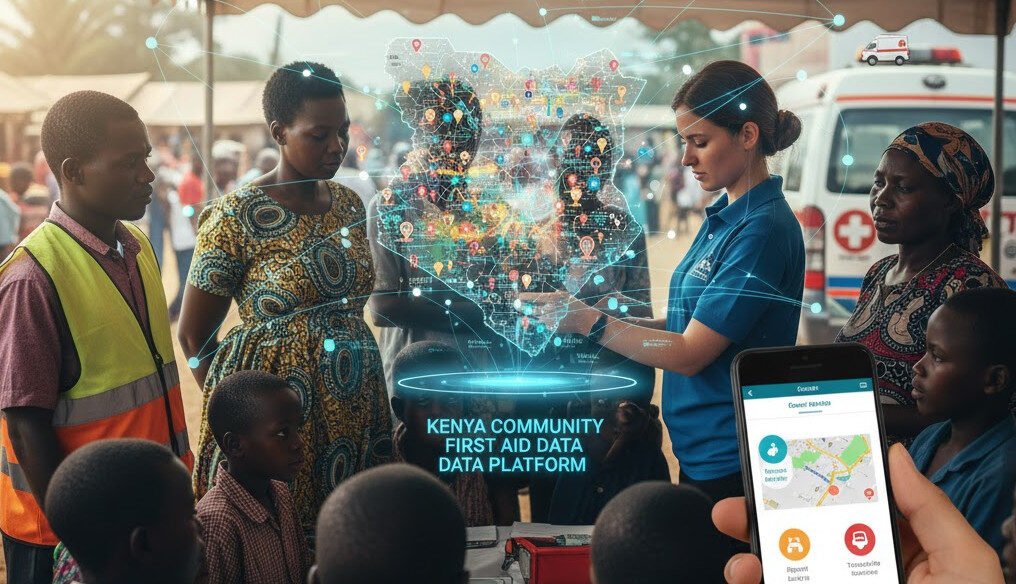
Locally generated First Aid data can inform public health interventions, improve prehospital response capacity, and bridge existing gaps in emergency preparedness across counties in Kenya.
In many parts of Kenya, emergencies are handled long before an ambulance arrives – often by ordinary citizens with limited resources but immense willingness to help. Yet despite their critical role, community responders remain largely invisible in health data systems. Their stories, outcomes, and challenges are seldom captured in ways that inform national preparedness or policy.
At The QuickFix Learning Hub, we are working to bridge that gap. Our mission extends beyond First Aid training – we are laying the groundwork for a data-informed culture of emergency response across Kenyan communities.
Through the STOP THE BLEED® Kenya Initiative, over 1,300 people have been equipped with life-saving skills across nine counties. These include boda riders, teachers, students, and caregivers – individuals who often serve as the true first responders in rural and peri-urban settings. Alongside this grassroots training effort, we have begun using basic reporting tools and social media monitoring to record participation, map engagement, and gather real-world feedback from trainees.
While still in its early stages, this reporting framework provides valuable insight into where skills are concentrated and what kinds of emergencies are most frequently encountered. These initial datasets are helping us identify priority regions, common response barriers, and areas that would benefit from closer coordination with local health departments.
Looking ahead, The QuickFix Learning Hub is integrating artificial intelligence and digital reporting into its operational model. The goal is to create simple, mobile-friendly tools that allow field trainers and community members to log First Aid interventions, training outcomes, and incident trends in real time. This approach will enable a clearer understanding of Kenya’s prehospital landscape while laying the foundation for a future National Community First Aid Data Platform.
Our vision is for this platform to evolve into a shared repository – connecting communities, emergency responders, and policymakers through reliable, locally generated data. In doing so, Kenya can strengthen its emergency preparedness framework, improve coordination between sectors, and ensure that First Aid becomes a measurable, data-driven component of national health resilience.
At its core, this effort reflects a simple belief: data saves lives when it guides action. By documenting what communities are already doing right — and identifying where additional support is needed – we can turn every First Aid lesson, incident report, and training session into evidence for a stronger, more connected health system.
The QuickFix Learning Hub remains committed to pioneering this transformation – where technology, training, and data converge to build a safer, more resilient Kenya.